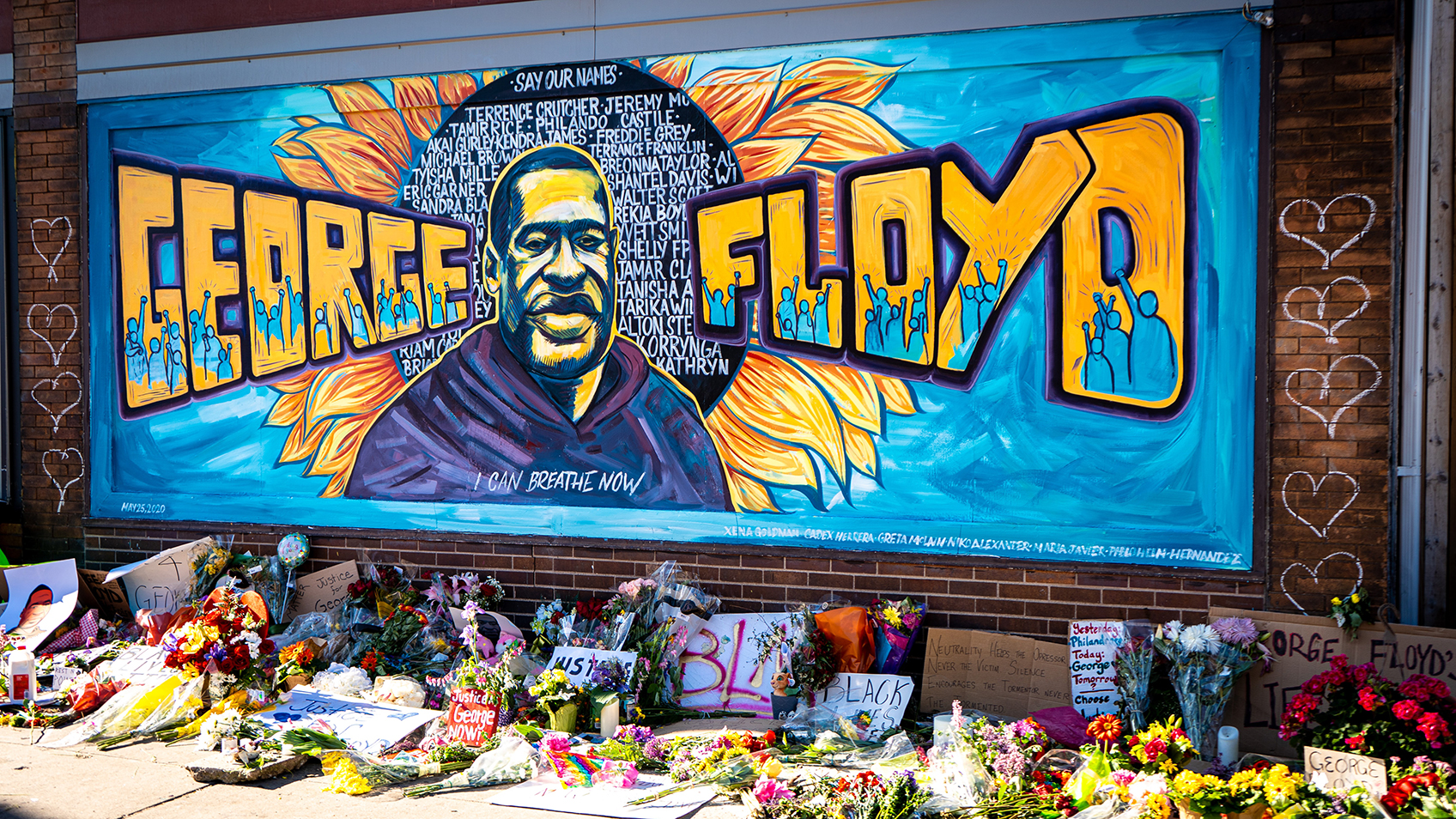
In Genesis 2, God formed the first human from dust and breathed “the breath of life” into his nostrils. God’s breath makes us human. George Floyd’s heartbreaking cries for breath have resonated so deeply because his killer literally took that God-given breath, and his humanity, away from him. God calls this sin murder. And it’s important to name it. God is very intentional about the act of naming people and things throughout scripture. It provides clarity and vision. We should follow suit.
But there’s a deeper sin to name here as well. In Genesis 1, the Bible says that all people were created in God’s image. We are all His creation. And like the loving Creator He is, he wants the best for us. He wants us to thrive. In John 20, Jesus “breathed” his Spirit into his followers, liberating them from the fear that kept them behind locked doors. God’s breath isn’t just associated with our physical well-being; He wants to free us so we can flourish and live into the person he made us to be. George Floyd was murdered by a representative of an institution created by our governing system. His death is also symbolic of the ways racism has infected our society and all of its systems, choking out the opportunities, hopes, and dreams of people of color across our country for generations. The name we give this sin is systemic racism.
In recent weeks, we’ve seen videos of George Floyd, Ahmaud Arbery, and Christian Cooper, to name a few. Their stories have simply given a face to the statistics and indicators of systemic racism and disparity in our country. By almost every measure of social, economic, and physical well-being, people of color are disadvantaged relative to white Americans. And while our country has made visible progress from the days of slavery, Jim Crow laws, and redlining, the spirit and structures of those national sins still permeate our society, often in ways that aren’t as visible to those who don’t experience them firsthand. Our systems restrict people of color from flourishing.
So, what can we do about this as Christians? At its core, systemic racism denies God’s image and his breath. Politicians of all stripes will propose new systems and new laws to fix the problem, and we should support those efforts. God calls us to that. His example, loving the world and sacrificing His son, is also our calling. But ultimately, we know the only permanent cure for sin is the fullness of the gospel. We must preach it loudly and clearly in word and action.
In the Old and New Testament, we’re told that loving God and loving our neighbor are deeply connected. In Micah 6 we hear that worship without mercy, justice, and humility is in vain. And in Matthew 23, Jesus rebukes the Pharisees for tithing but forgetting the “more important matters of the law — justice, mercy, and faithfulness.” Let’s follow Scripture and have our faith reflect the cross: First, God justifies us vertically and then calls us into just relationships horizontally with all his children. A relationship with God automatically entails the individual and collective well-being of those experiencing injustice. That is called "shalom." We must heed their cries for help by living out the gospel of love.
At Cru Inner City, we believe now more than ever that the local urban church is best positioned to preach the fullness of this gospel within their communities. For years, they have been the faithful stewards of the space God has given them. They have lovingly built the relationships with their neighbors. Our mission is to continue serving them by learning from them as we equip and fortify their efforts. The church is the bride of Christ and his bulwark against the enemy. We double down on our commitment as an organization to support her ongoing gospel work.
And for our white Christ-following brothers and sisters who have reached out, wondering what you can do in this moment, we want to both thank you and challenge you. Remember that sin is the incarnation of broken relationships with God and others. God’s response to sin was the incarnation of his Son, re-establishing true relationship. Your most important task at this moment is not to “do,” but instead to “be” in relationship. But the way you relate at this moment is critical. For some of you, your eyes may just now be opening to the depths of suffering caused by 400 years of racism. That’s a lot of sin to unravel. And those who are suffering are exhausted, and sometimes out of breath. The best way for you to relate is the same you would for any family member grieving an ongoing loss. You need to listen, learn, and lament.
Under the weight of his killer’s knee, George Floyd cried out, “Mama,” with one of his final breaths. Under the weight of our sin, Jesus cried out, “My God, My God” in his final moments. As siblings of the Almighty Father, let us honestly name our great national transgression of racism, confess the ways it still weighs down our brothers and sisters of color, and cry out together for our Father to recreate us with his holy breath.

Milton Massie
Executive Director/Steward
Cru Inner City
©1994-2025 Cru. All Rights Reserved.